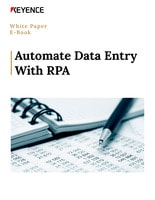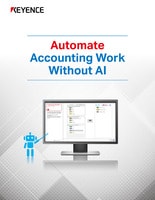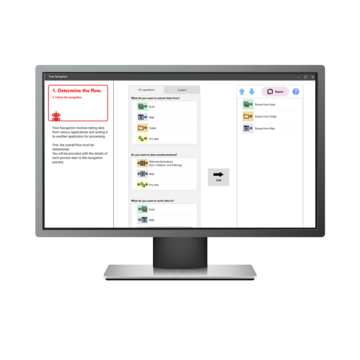RPA (Robotic Process Automation)
Report Generation with RPA

For businesses, generating reports is often a time-consuming and repetitive process. From pulling data from various sources to manually formatting the information, creating accurate and insightful reports requires significant effort and time. Moreover, manual processes increase the likelihood of errors, inconsistencies, and delays, which can lead to poor decision-making and missed opportunities.
Report generation is a critical task across departments, including finance, operations, marketing, and HR. Businesses need reports to track performance, monitor KPIs, comply with regulations, and forecast future growth. However, the traditional manual approach to report creation can be inefficient, error-prone, and costly.
Robotic Process Automation (RPA) offers an effective solution by automating the entire report generation process. With RPA, businesses can streamline data collection, formatting, and delivery, reducing manual work and freeing up valuable employee time. RPA ensures that reports are generated accurately and on time, leading to faster decision-making and more reliable business insights.
Discover more about this product.
Click here to book your demo.

How RPA Enhances Report Generation
Report generation is a critical task across departments, including finance, operations, marketing, and HR. Businesses need reports to track performance, monitor KPIs, comply with regulations, and forecast future growth.
Automating Data Collection
One of the most time-consuming aspects of report generation is gathering data from different systems, applications, and databases. RPA scenarios can automatically extract relevant data from multiple sources—whether it’s CRM systems, ERP software, spreadsheets, or databases—and consolidate it into a central repository. This automation eliminates the need for manual data entry, reducing the risk of errors and ensuring that reports are based on the most up-to-date information.
Streamlining Data Formatting
Once the data is collected, it needs to be formatted correctly for reporting purposes. RPA can automate the process of converting raw data into a structured format, applying formulas, and creating tables, graphs, and charts. This ensures that reports are visually appealing and easy to understand. Additionally, RPA can automatically adjust report formats based on pre-set templates or requirements, ensuring consistency across all reports.
Customizing Reports
RPA allows for the creation of customized reports based on specific criteria, departments, or business needs. For example, a finance team may need detailed income statements, while a marketing department may require campaign performance reports. RPA scenarios can generate reports tailored to each department’s needs, pulling data from various sources and organizing it in the preferred format.
Ensuring Accuracy and Consistency
Manual report generation often leads to discrepancies, especially when different people are involved in collecting and formatting data. RPA ensures that reports are generated based on the same set of rules and processes every time, minimizing the risk of human error and inconsistencies. Automated reporting provides businesses with reliable, accurate data to base their decisions on.
Automatic Distribution of Reports
RPA can automatically deliver reports to designated recipients via email, cloud storage, or integrated systems. For instance, weekly sales reports can be automatically emailed to the sales team, while financial reports can be shared with senior management. This automated delivery saves time and ensures that stakeholders receive the reports they need without delay.
Key Benefits of Automating Report Generation with RPA
- Time Savings: RPA eliminates the need for manual data gathering and formatting, freeing up employees to focus on higher-value tasks.
- Improved Accuracy: Automation reduces the likelihood of errors, ensuring that reports are accurate, consistent, and reliable.
- Consistency and Standardization: RPA ensures that reports are created using predefined templates and processes, maintaining a consistent format across all departments and business units.
- Faster Decision-Making: With automated report generation, businesses can access timely, accurate data that supports faster and more informed decision-making.
- Cost Efficiency: By reducing the amount of manual effort involved in report creation, businesses can reduce operational costs and improve resource allocation.
Real-World Use Cases for RPA in Report Generation
- Financial Reporting: RPA can automate the generation of financial statements, balance sheets, profit and loss statements, and other financial reports. Scenarios can pull data from accounting systems and ensure that reports are up-to-date and accurate.
- Sales Performance Reporting: Sales teams can use RPA to automate the generation of sales reports, such as revenue tracking, sales forecasts, and customer acquisition data. This enables the team to quickly analyze performance and identify trends.
- Marketing Campaign Reports: Marketing teams can automate the generation of reports related to campaign performance, such as ROI, conversion rates, and engagement metrics. RPA can pull data from CRM systems, social media platforms, and email marketing tools.
- Compliance and Regulatory Reporting: Businesses in regulated industries can use RPA to ensure that compliance reports are generated on time and include all necessary information for audits or regulatory submissions.
Integrating RPA with Reporting Tools and Platforms
RPA can integrate seamlessly with a wide variety of reporting tools and business intelligence software. By combining RPA with existing reporting tools, businesses can automate both the data collection and visualization aspects of report creation, improving the overall efficiency and effectiveness of their reporting workflows.
By automating report generation with RPA, businesses can ensure timely, accurate, and consistent reporting, providing stakeholders with the insights they need to make informed decisions quickly and efficiently.
FAQs
How Does RPA Help with Report Generation?
RPA automates the data collection, formatting, and delivery of reports. It pulls data from multiple sources, organizes it, and generates reports in the desired format, saving time and improving accuracy.
Can RPA Generate Customized Reports?
Yes, RPA can generate customized reports based on specific business requirements. Scenarios can tailor reports for different departments or stakeholders, ensuring the information is relevant and accurate.
We’re here to provide you with more details.
Reach out today!





